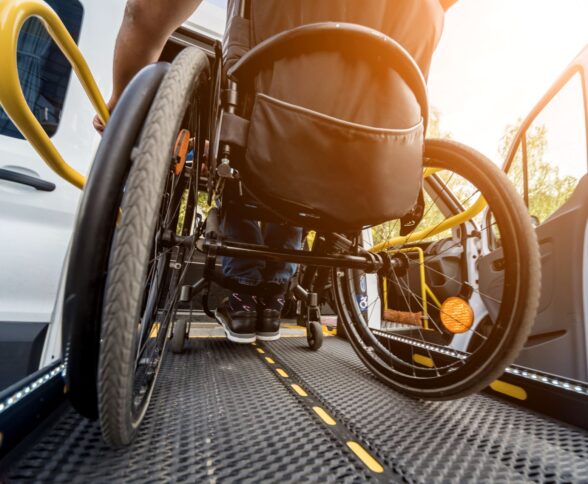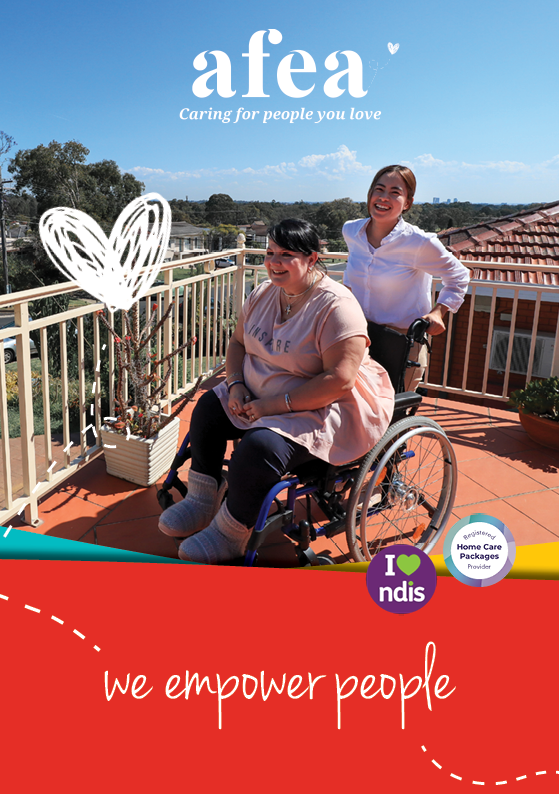A recent survey found that many disability support workers don’t have confidence in the COVID-19 vaccine. The survey found that most support workers agree that people being vaccinated is the best way to stop the pandemic. However, they admitted they feel concerned about the side effects and safety information of the vaccines available in Australia.
At Afea, we want our disability and aged care support workers to feel safe and supported. With news and developments about the vaccines coming out every day, it’s normal to feel concerned and maybe even hesitant about getting a vaccine. So, we thought we’d look at some of the common questions from our carers and provide answers from evidence-based sources.
Are disability support workers eligible for a vaccine?
Yes, as a health care worker who provides care for a vulnerable group, disability support workers are eligible for a free COVID-19 vaccine. To find out where you can get this vaccination, visit the Eligibility Checker.
Will I have to pay for a COVID vaccine?
No. Everyone in Australia can get a free COVID-19 vaccine if they want to.
Can I choose which vaccine I get?
No. There are currently two types of vaccines – the Oxford AstraZeneca and the Pfizer/BioNTech vaccine. They have been prioritised to different groups. If you are:
- under 50 years old, you will receive the Pfizer vaccine;
- 50 years old and older, you will receive the AstraZeneca vaccine.
If you’d like to learn more about the different vaccines and which group gets what, watch this video from Dr Lucas De Toca, (COVID-19 Primary Care Response First Assistant Secretary).
What are the risks of the vaccines?
As with any vaccine, there are some risks of side effects. Common side effects with both vaccines include:
- injection site pain or tenderness
- tiredness
- headache
- muscle pain
- fever and chills
Less common Pfizer side effects
Other less common Pfizer side effects include:
- redness at the injection site
- nausea
- enlarged lymph nodes
- feeling unwell
- pain in limb
- insomnia
- itching at the injection site.
These side effects are usually mild and usually go away within one or two days. Here is some more information about side effects from the Pfizer vaccine.
Less common AstraZenica side effects
The AstraZenica vaccine has been associated with a rare side effect called thrombosis in combination with thrombocytopenia (TTS). This side effect is very rare – the rate of TTS is about 6 cases per million people vaccinated. However, the rate is estimated to be higher (20-40 cases per million) in those
under 50 years of age. This is why AstraZenica isn’t recommended for those under 50. Here is some more information about side effects from the AstraZenica vaccine.
Were the vaccine approvals rushed through?
You may have heard that the COVID-19 vaccine was developed quicker than other vaccines, which may worry you. The reason it was quicker wasn’t because they rushed through the development process.
It was because the urgency of the pandemic allowed researchers and developers to prioritise working on the vaccine. There was also a lot of funding to develop new technologies that helped scientists understand the virus quicker and in more detail.
The Australian Therapeutic Goods Administration made a full and thorough assessment of the vaccines before approving them here. They could review all clinical trial data as it became available rather than waiting for it to be published. This also sped up the process. Read more about the vaccine approval process here.
Can I read about the vaccines in my language?
The Australian Federal Government has translated vaccination information into many languages. Visit this page to find your language.
I’m still not sure. Where can I get more trustworthy information?
Doctors and health professionals have answered many common COVID-19 vaccine questions.
Dr Norman Swan also has a great podcast called ‘Coronacast’ on the ABC which answers your questions about the pandemic.
We always recommend that if you have any health-related questions, talk to your own doctor. They can talk you through your concerns and help you make the right decision based on your own health and circumstances.
Photo by Nataliya Vaitkevich from Pexels















